Should I Wear a Mask Again? We Asked Our Experts
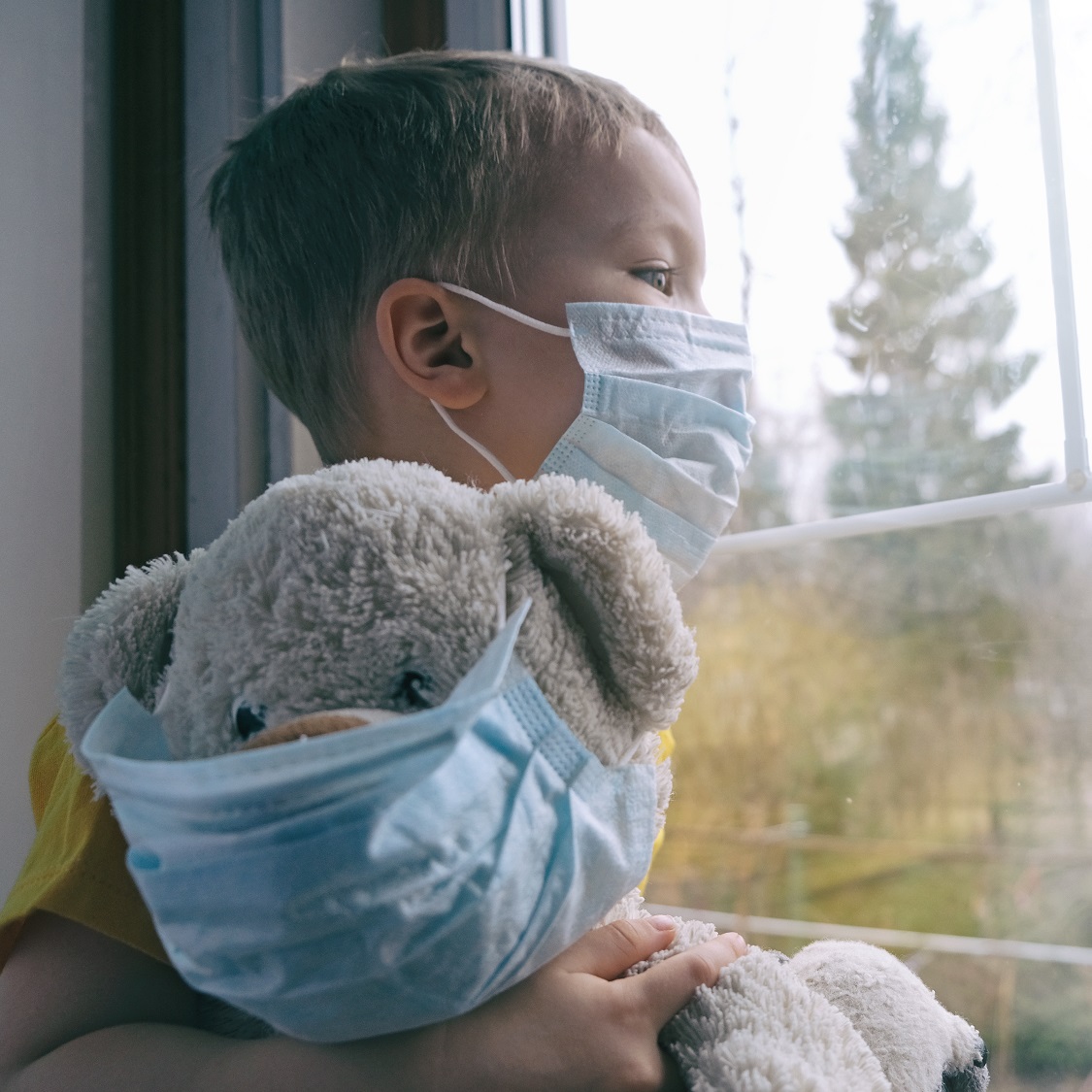
August 10, 2021
In May, the Centers for Disease Control and Prevention modified its mask-wearing recommendations, saying that fully vaccinated people could stop wearing masks indoors and outdoors. However, in July, the CDC once again modified its recommendations, saying that fully vaccinated people should wear masks indoors in areas of substantial or high transmission.
The CDC’s recent change to its recommendations is intended to help limit the spread of the Delta variant, a highly transmissible variant of SARS-CoV-2, the virus that causes COVID-19. Most Americans who test positive for COVID-19 right now are believed to be infected by the Delta variant. In many cases, infected people are unvaccinated, but fully vaccinated people have experienced breakthrough cases, as well. Researchers have documented that fully vaccinated people who test positive for the Delta variant may infect unvaccinated people, even when those who are vaccinated are asymptomatic.
“Wearing masks is an act that doesn’t just offer protection to the mask-wearer, it helps to protect other people around you,” says Thomas Bader, M.D., vice president of medical quality at Hackensack Meridian Health. “Fully vaccinated people may unwittingly spread the Delta variant to unvaccinated people whom they come into contact with, not realizing that they are carrying and spreading the virus. Wearing a mask helps to limit this type of spread, which may help to control the pandemic.”
Here are answers to common questions that we’re getting about whether or not to wear masks indoors again:
Why is the Delta variant so worrisome that the CDC has revised its mask recommendations?
The Delta variant spreads more easily than other SARS-CoV-2 variants, and some evidence suggests that it may cause more severe disease. The variant has been shown to cause breakthrough infection among fully vaccinated people, although this is uncommon. The mask recommendation is intended to help limit the spread of the Delta variant.
What are areas of substantial or high transmission?
The CDC tracks the number of COVID-19 cases in counties nationwide, updating the data regularly. Counties with substantial transmission rates have between 50 and 99 new cases per day diagnosed per 100,000 people. Counties with high transmission rates have 100 or more new cases per day diagnosed per 100,000 people. If you live or work in a county with substantial or high transmission rates, you should wear a mask indoors, even if you’re fully vaccinated.
Should certain people wear masks, even if local transmission rates aren’t substantial or high?
Maybe. The CDC recommends that fully vaccinated people who have weakened immune systems – or those who live with someone with a weakened immune system – should consider wearing masks in indoor spaces, regardless of local transmission rates. Parents of children who are too young to be vaccinated may also consider wearing masks. This extra layer of protection may help to keep immunocompromised people and younger children safer.
Does the new mask guidance from the CDC affect unvaccinated people?
No. Previously, the CDC recommended that fully vaccinated people could stop wearing masks indoors, but unvaccinated people could not. The current guidelines still say that unvaccinated people should wear masks in indoor settings.
What is the best guidance for wearing a mask?
Don’t wear a mask the wrong way. Remember to:
- Cover your nose and mouth with the mask
- Use a fabric mask or disposable surgical mask
- Pick masks made of two or more layers of tightly woven, breathable fabric
- Avoid wearing masks with exhalation valves
- Choose a mask with a wire, so that you can mold it to the bridge of your nose to fit more snugly
In addition to wearing a mask indoors, what else can I do to reduce the risk of getting COVID-19?
- Wearing a mask is a good step. But, probably the most important action that you can take to protect yourself and loved ones is to get vaccinated against COVID-19.
- Even after vaccination, wearing a mask likely provides you with some protection and protects others if you have an infection with few or no symptoms.
- Hand washing remains important. Use hand sanitizer when washing your hands isn’t an option.
- Social distancing is prudent – particularly if you live or work in an area with substantial or high COVID-19 transmission.
- Stay home if you have a fever or respiratory symptoms, even if you’ve been vaccinated. Cases of COVID-19 after vaccination are uncommon, but they do occur. And, even though vaccinated people usually don’t get very sick, they could still transmit the virus to others.
Next Steps & Resources:
- Meet our source: Thomas Bader, M.D.
The material provided through HealthU is intended to be used as general information only and should not replace the advice of your physician. Always consult your physician for individual care.eNewsletter.
Can Babies Get COVID-19?
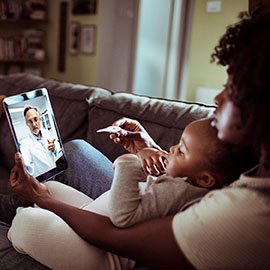
The virus that causes COVID-19 doesn’t discriminate; anyone who’s exposed to SARS-CoV-2 might get sick, even babies.
Should We Worry About the Omicron Variant?

The latest COVID-19 variant has stepped on the scene - enter Omicron.
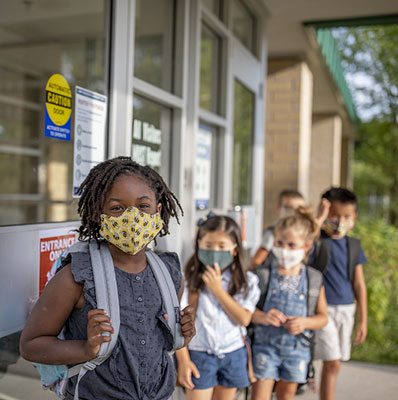
Should Kids Still Wear Masks?
As the school year begins, many parents are asking themselves if they should still mask up their children when they send them off to school.
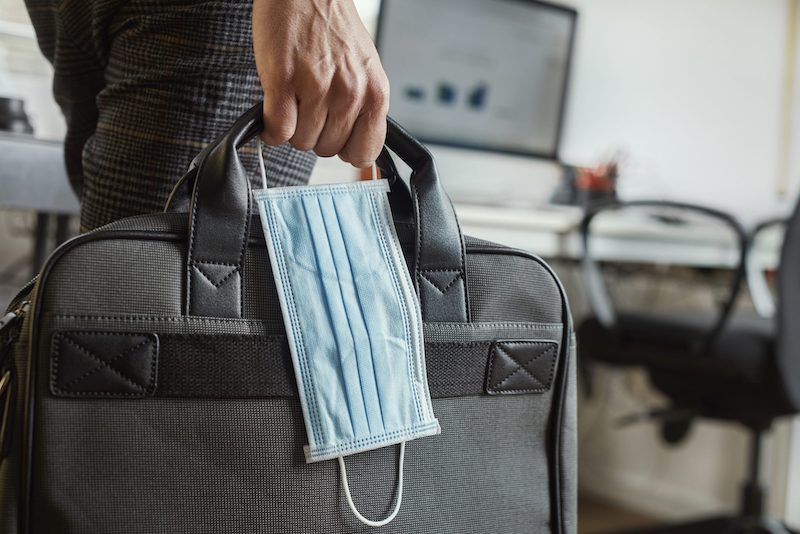
Five Common Masking Mistakes People Make
Everyone can help prevent the spread of COVID-19 by wearing a mask the right way.
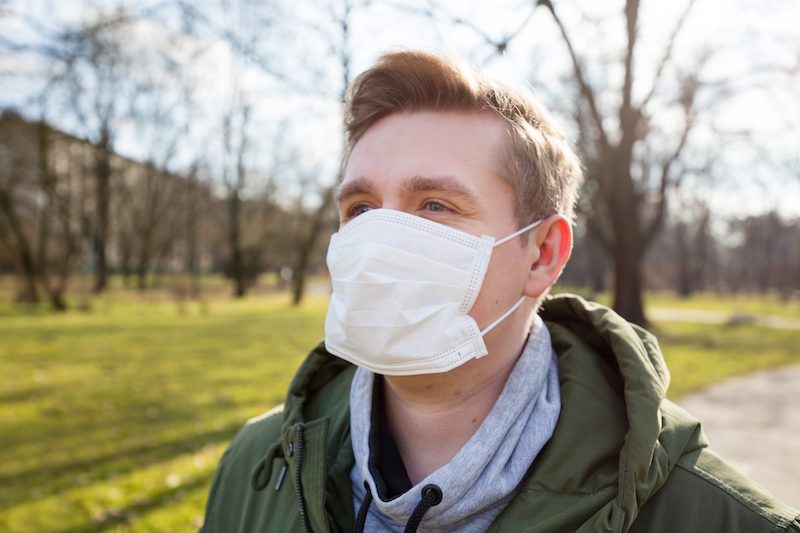
Should You Wear a Mask Outside?
The CDC stresses that we must maintain 6-feet of social distancing from others to continue slowing the spread of coronavirus.
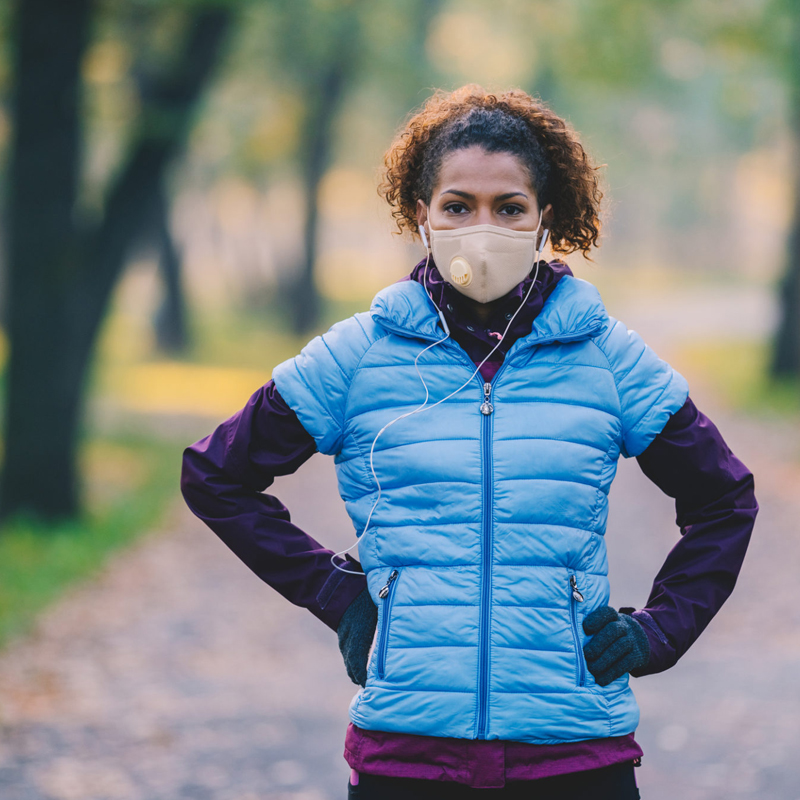
How to Work Out Comfortably with a Mask
Since March 2020, exercising has been one of many activities to drastically change, but it’s still possible to do so safely.